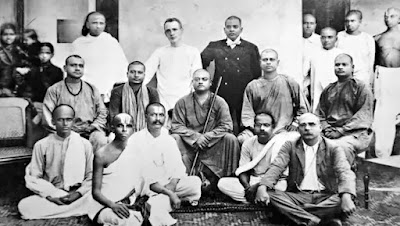In the 21st century, Swami Vivekananda is considered as a rationalist with secular outlook. He interpreted Hindu Dharma in the light of Sri Ramakrishna’s teachings. Max Muller in his book on “Sri Ramakrishna” quotes the words of Ramakrishna, “As a lamp does not burn without oil, so a man cannot live without God”. He told modern man God was essential to man’s existence. According to John. C. Travell, a congregational minister, “Ramakrishna found God in each religion because he did not merely take from them what fitted his own ideas, he sought first to know them from the inside, to understand them for themselves. His devotion was always to God and the truth first. His belief in the underlying unity and harmony of all religions was an expression of that learning.
To read the full article, Click Here.


